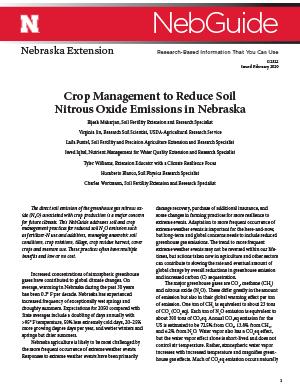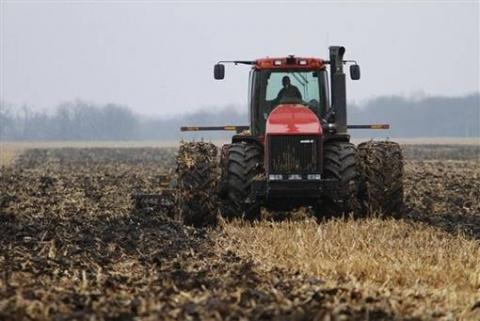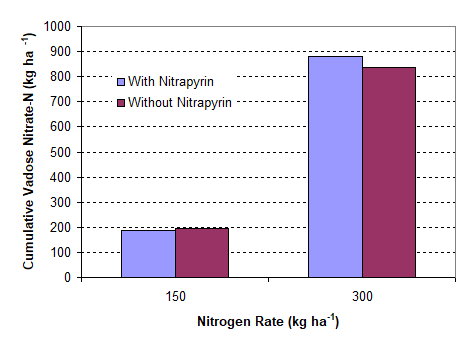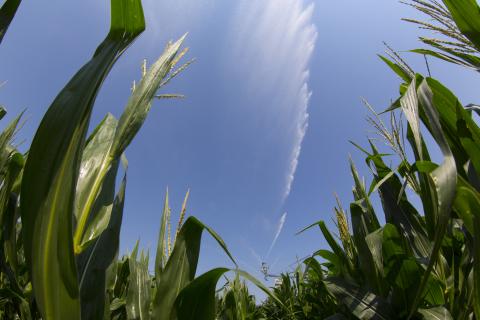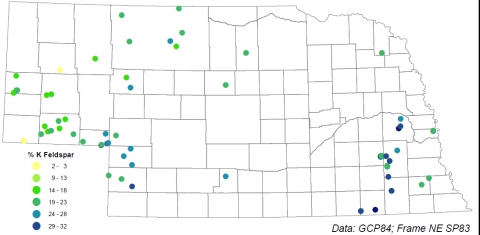Proposed Changes to Nebraska Recommendations for Manure Nitrogen Credit
April 7, 2020
Managing manure for economic and environmental benefit is based, in part, upon our ability to efficiently recycle manure nitrogen (N) between animals and crops.
New NebGuide - Crop Management to Reduce Soil Nitrous Oxide Emissions in Nebraska
February 24, 2020
A new NebGuide, G2322, authored by Bijesh Maharjan, Virginia Jin, Laila Puntel, Javed Iqbal, Tyler Williams, Humberto Blanco and Charles Wortmann, is available in both html and PDF formats.
Manure Nitrogen Use for Increased Profit and Environmental Protection
February 5, 2020
Land application of manure and other organic materials supplies much N to Nebraska’s crop production. In contrast to most other nutrients applied in organic materials, the availability of manure-N and its fertilizer-N substitution value is not well-predicted.
Strategic Tillage for the Improvement of No-Till Cropping Systems
January 21, 2020
The practice of OT once in 5 to 10 years or more is not likely to adversely affect no-till systems. However, to be beneficial, the OT has to be well-planned and implemented to target a well-characterized problem such as a weed control or compaction problem.
Agronomic Management for Reduced Nitrate Leaching
January 7, 2020
The leaching of nitrate to groundwater and the increasing occurrence of groundwater with excessive nitrate levels for human consumption is a major concern in Nebraska. The amount of leached NO3- depends on soil NO3- concentration at different soil depth layers and the quantity of water movement downward through these soil layers to beyond the root zone.
Crediting Essential Nutrients Applied in Irrigation Water
December 18, 2019
Crediting some of the nitrate-N applied in irrigation water for determination of fertilizer-N rates has long been advised in Nebraska.
Soil Potassium Availability: The Roles of Manure, Irrigation and Potassium Feldspar
December 17, 2019
Why do Nebraska soils tend to have high potassium (K) availability, even with high yields and often without fertilizer K application? Why are yield responses to fertilizer-K infrequent?
Soil Amendments
December 9, 2019
Soil amendments are any materials that when added to soil will improve its properties and processes. Amendments such as lime, gypsum, manure, or biochar can provide many benefits to production systems by improving soil chemical, physical, and biological properties. Some examples of production benefits from amendments include raising pH, adding nutrients, increasing soil organic matter, mitigating salt-affected soils, and improving soil water storage.

